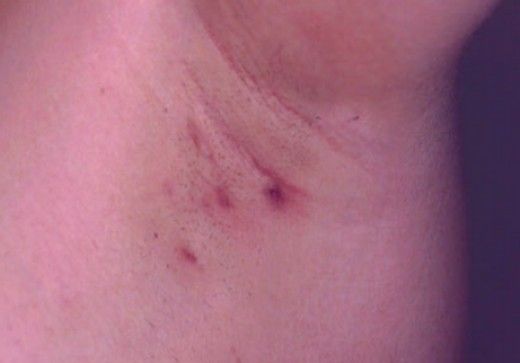More than 100,000 Danes suffer from the unpleasant skin disease Hidradenitis suppurativa (HS).
HS is a chronic disease characterised by clusters of abscesses that most commonly affect sweat gland bearing areas, such as the underarms, under the breasts, inner thighs, groin and buttocks. The disease is not contagious. Onset is most common in the late teens and early 20’s.
“The first few years I did not tell anyone about my illness because I felt disgusting and clammy,” HS sufferer Janne Kragh said today on the early morning television programme Go’ Morgen Danmark. “I was afraid of what others would think if I told them that I had boils under my arms and in the groin area.”
Kragh said that she first started experiencing symptoms at 14-years-old.
READ MORE: More Danes infected with sexually transmitted diseases
Marie Louise Funt, who also suffers from the disease said the affliction remains difficult to talk about.
“I opted out of intimacy because it is hard to talk about something you think is disgusting,” said Funt. Funt was 11-years-old when she first developed symptoms.
Diagnosis can take years
HS is incurable and hard to diagnose. Both women say they were in and out of hospitals for many years before the doctors hit on HS as the culprit. Funt waited 18 years, while it took a full 30 years before doctors finally diagnosed Kragh with HS.
Skin specialist Susanne Benfeldt said that many doctors are not familiar with HS.
“The biggest problem is the long latency period between experiencing the first symptoms until a doctor makes the diagnosis,” Benfeldt said.
A new campaign by the HS patient association has just been launched which aims to create more openness about the disease and break the taboo.
“It is a huge relief when you realise that you are not alone,” said Funt. “It is important to spread the word so the disease becomes more accepted in society.”














